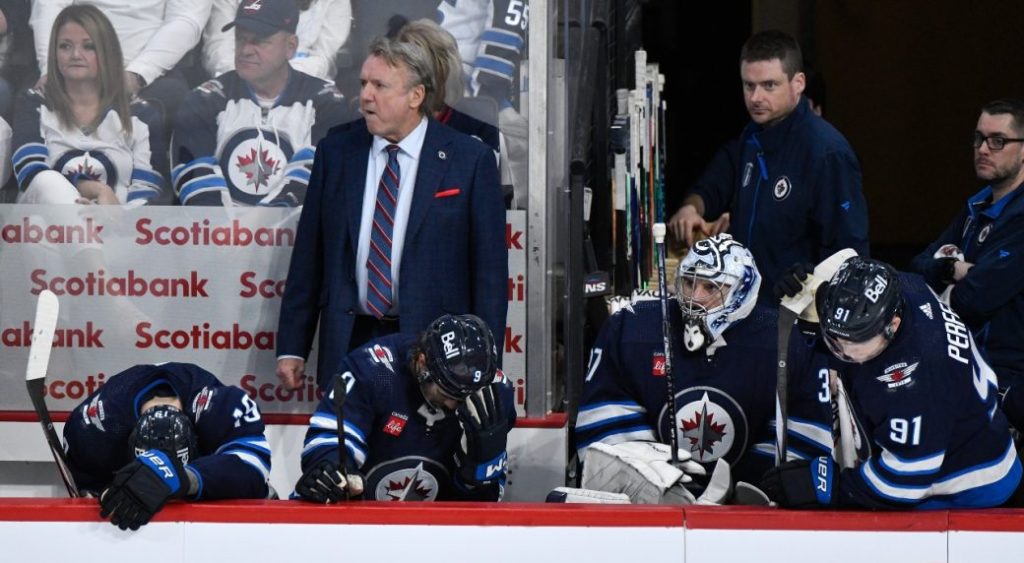Pierre Poilievre first ballot winner in Conservative leadership race
Posted September 10, 2022 3:00 am.
Last Updated September 10, 2022 10:39 pm.
Pierre Poilievre has been chosen as the next leader of the Conservative Party of Canada.
The veteran Conservative was the clear choice in a first ballot victory, claiming 68.15 per cent of the electoral points among more than 400,000 votes cast by the party’s membership following a seven month race.
Jean Charest, the former Quebec premier who likely had the best chance of preventing Poilievre from winning the leadership, earned just 16 per cent of support on the first ballot, placing him in distant second place.
Rookie Conservative MP Leslyn Lewis, who stunned many with her strong showing in the 2020 leadership race, earned just nine per cent this time around, despite having the backing of the party’s well-mobilized social conservative wing.
Former Ontario legislator Roman Baber scored roughly five per cent and rural Ontario MP Scott Aitchison finished with about one per cent.
A riding-by-riding breakdown of the results show Poilievre captured widespread support across the country, being the first choice for Conservative party voters in nearly each of its 338 ridings.
Poilievre is the first to win the leadership on a first ballot since Stephen Harper won in 2004 in the party’s first leadership race, and he becomes the party’s third leader in the last six years.
The announcement was made before more than 1,000 party faithful who gathered in downtown Ottawa under a more sombre atmosphere than initially planned, in reflection of the country’s mourning after the death of the Queen on Thursday.
Poilievre replaces former leader Erin O’Toole, who was voted out by his caucus in early February, triggering the current race. O’Toole himself appeared by video to deliver thanks and emphasized to the crowd the importance of unity in the party. He said he was honoured to lead, but for “too short” of a time.
Congratulations, @PierrePoilievre, on being elected Leader of the Conservative Party tonight. As Parliamentarians, we must work together to deliver results for people across the country. Canadians expect – and deserve – nothing less.
— Justin Trudeau (@JustinTrudeau) September 11, 2022
I would like to extend my congratulations to Pierre Poilievre on becoming the Leader of the Conservative Party.
I know we will disagree on a lot and rarely find common ground – it's time Canadians have leaders that tell the truth and refuse the destructive politics of division.
— Jagmeet Singh (@theJagmeetSingh) September 11, 2022
Poilievre, who ran a populist campaign around the theme of “freedom,” will now face the task of uniting the party behind him as Conservatives look return the party to government after being shut out by Prime Minister Justin Trudeau’s Liberals for the past three elections.
Poilievre delivered a victory speech that heavily featured his campaign themes of cost-of-living concerns and criticisms of Prime Minister Justin Trudeau’s government, particularly the rate of spending and the toll inflation is taking on Canadians.
“Today people feel like they’ve lost control of their pocketbooks and their lives,” he said. “The cost of government is driving up the cost of living.”
Some people are hanging on by a thread, Poilievre said, vowing to restore hope.
“They don’t need a government that sneers at them, looks down on them and calls them names,” he told the crowd. “They don’t need a government to run their lives. They need a government that can run a passport office.”
In her final speech as interim leader, longtime Manitoba MP Candice Bergen said she wants to be remembered as helping promote unity.
She also imparted some advice to the new leader: “Respect, listen to and trust our caucus.”
Poilievre will be leader of the Official Opposition, also now know as His Majesty’s Loyal Opposition. The House of Commons resumes sitting on Sept. 20, one day later than originally scheduled, to accommodate the state funeral for the Queen being held Sept. 19. There will also be a special sitting on Thursday to commemorate the late monarch.
Who is Pierre Poilievre
At 43, Poilievre was first elected in 2004 as one the youngest MPs in the House of Commons, where he represents the Ottawa-area riding now called Carleton.
He entered the leadership contest beloved by many of the party’s grassroots and revered as one of the party’s highest-profile MPs and most effective performers in Parliament.
The MP rose to prominence after the Conservatives defeated the Liberals in 2006. In 2008, Harper named him to serve as his parliamentary secretary and it was through that role the young Poilievre earned his reputation as being an attack dog whose style irked critics as being overly aggressive and, at times, immature.
In 2013, Poilievre was appointed to serve as democratic reform minister. In that government’s dying days of 2015 before it fell to the Liberals, he briefly served as employment minister.
Poilievre is married with two young kids. His wife Anaida, whom he wed in 2017, works on Parliament Hill as a political staffer.
Before he was elected as an MP, he grew up running in Conservative circles, coming to Ottawa in 2002 as a political staffer for former Canadian Alliance leader Stockwell Day and grew up campaigning for the likes of leaders such as Jason Kenney.
Poilievre was raised in Calgary and was adopted by his parents. He has said the reason he became interested in politics is because of an injury that left him unable to keep playing competitive sports as a teen.
In the years since the Conservatives lost power, Poilievre served as the party’s finance critic, honing his economic messages against government spending and deficits, which he delivered more loudly once the COVID-19 pandemic hit and inflation surged.
Leadership ambitions had been on Poilievre’s mind for at least a couple of years.
He considered running the last time the party was picking a leader in 2020, but ultimately decided against it just days before his campaign was supposed to launch.








